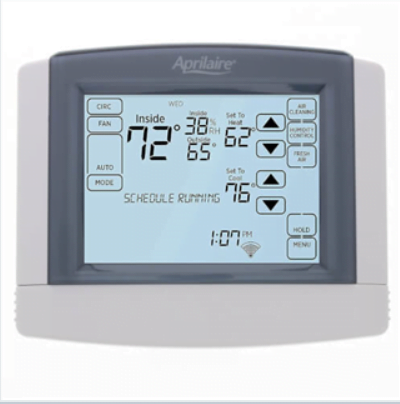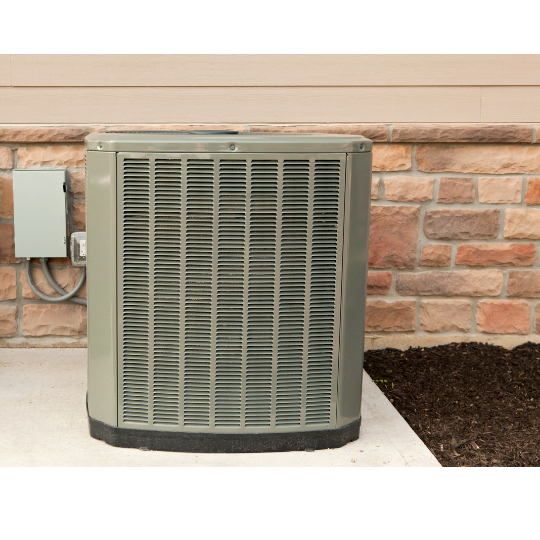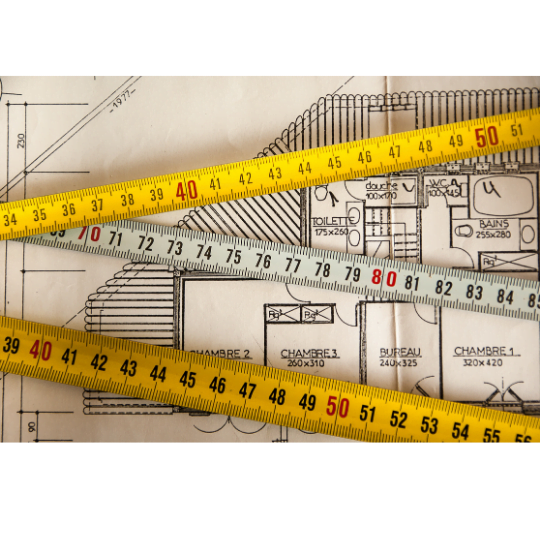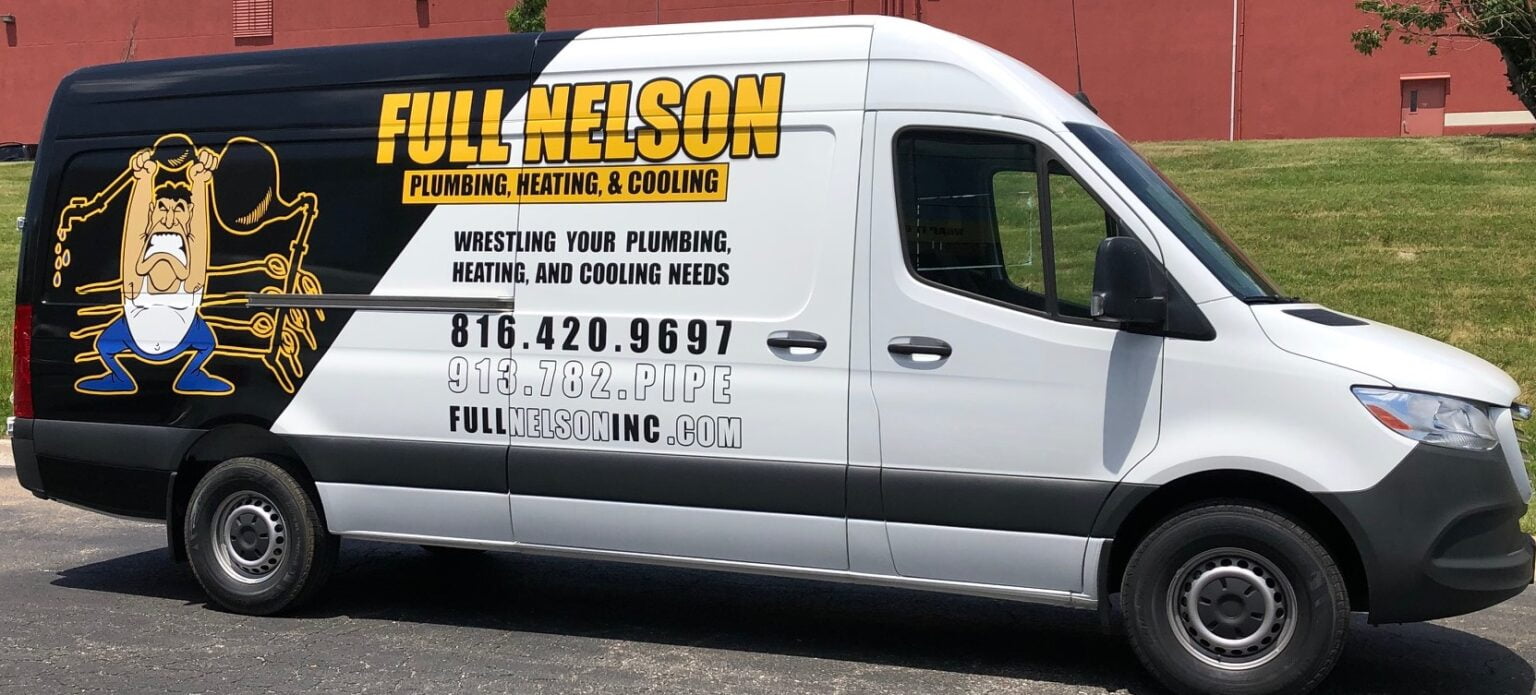Your air conditioner (or heat pump) should last between 10-15 years–as long as you take good care of it. Proper maintenance for your cooling system can save you money on utility bills, extend the lifespan of your HVAC system, and keep your home more comfortable.
We always recommend enlisting the help of a seasoned HVAC expert for repairs or maintenance, but here are a few tips from our award-winning team to keep your AC in tip-top shape.
- Change your filter! Keeping a clean air filter in your HVAC system is the easiest thing you can do to make sure your system runs as efficiently as possible. Most experts recommend changing the filter twice a year, but that can vary depending on how many pets you have or on the size of your home or your system. Make sure the new filter has the same airflow rating, and match the air-flow direction arrows on the filter to the arrows on the unit.

- Clean your vent covers and consider duct cleaning. You can go the easy route and use a vacuum with a brush extension to quickly clean the vent covers throughout your house, or you can remove the vent covers with a screwdriver and wash them in soapy water for a more thorough cleaning. If you notice a constant buildup of dust and pet fur, you should probably consider getting a whole-home duct cleaning to get the excess debris out of your ductwork. For more on the benefits of duct cleaning, click here.

- DON’T wrap your AC unit! Tempting though it may be to put a protective cover over your condenser during the cold months, it’s not a good idea. That cover would trap moisture that could lead to rust and corrosion in and on your condensing unit. It would also be very inviting for pests looking to build a nest in your AC. It’s much safer to cover the top of the unit (but not the sides!) to prevent debris from falling in.

- Clean the area around your unit. Rake back leaves outside the condenser and cut back branches and vegetation at least a couple feet to ensure good airflow around the unit. However, keeping shade over your AC unit (whether from trees or an awning) could increase efficiency by up to 10% according to the EPA.

- Keep blinds or curtains closed during the hottest part of the day. This tip isn’t about maintaining your AC as much as it is about maintaining your utility bills, but decreasing the strain on your system during the hottest months of the year (May-September) will improve efficiency, which lengthens the life of your AC.

- Check your condensate line. In your interior unit, warm, humid air from your home’s interior is blown through the evaporator coil to be cooled before being circulated back into your home. The humidity in the air condenses on the cool surface of the evaporator coil as liquid water, dripping into a pan below. A drain tube (we call it your condensate line) carries the water from the pan into a basement floor drain or outside. If this line clogs and your system has a drain float, it will stop cooling to avoid flooding. If this line clogs and you don’t have a drain float, water’s going to go where it shouldn’t and could cause some costly damage.

- Consider a programmable thermostat. Programmable thermostats allow you to set temperatures for various times throughout the day and automatically lower the temperature when you need it, even when you can’t reach the dial. According to the U.S. Environmental Protection Agency, a programmable thermostat can save you up to 30% on energy costs annually. You can also set service reminders for your HVAC system, humidifier, dehumidifier and air filter.

- Check the concrete pad under your condenser. Over time, the slab of concrete supporting your AC unit can settle and sink. Make sure that if this is happening at your home, that it’s not putting strain on the copper coolant tubes or the electrical lines, and that your condensing unit is still level.

- Make sure your AC is the right size for your home. Too small, and the unit will work much harder than it should to cool the home and the extra strain will shorten the life of the unit. Too large, and the unit won’t extract the proper amount of moisture from the air, and the excess humidity in your house could damage your walls, floors, appliances, and furniture. There are handy calculators online, and an expert in heating and cooling can tell you what size and efficiency would be ideal for your home.

- Check refrigerant levels. Now, this one does require an expert’s help. There is a special tool that has to be used to check the refrigerant levels in your AC, and refrigerant can only be purchased by certified HVAC Technicians. Most units shouldn’t have problems with low refrigerant levels until they are older, but low refrigerant means little to no cool air, and can cause the lines to your AC to freeze over. If this happens, turn the AC off and leave the fan on, and then give us a call. Once the lines have thawed, our experts can locate the leak, give you options and pricing for repairs, and make sure you have all the answers before moving forward with a solution.
- Have a certified expert do a safety and efficiency check up on your system 2x Annually. Manufacturers strongly recommend this, to the point that some will void a warranty if the units are not properly maintained. We offer our clients a Total Home Care Club membership that includes preventative maintenance for your HVAC system, preventative maintenance for plumbing, discounts on repairs, priority service, and free consultations. Give us a call today to find out how to join the Club!













